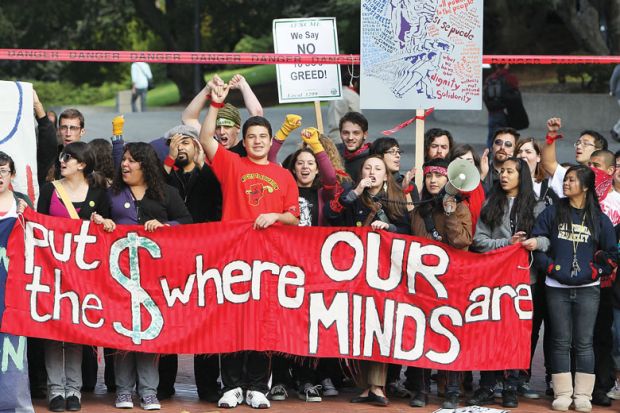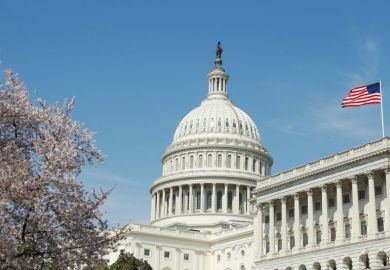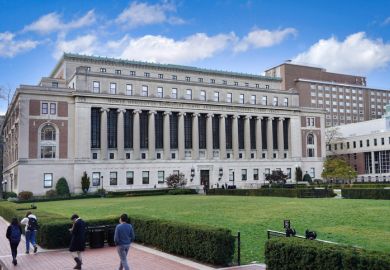Leading US advocates of free college have conceded the logic of the Biden administration’s switch to funding free preschool, but predicted that educational and economic realities will ultimately make policymakers see the need for both.
The White House and congressional Democrats, in whittling a planned $3.5 trillion (£2.6 trillion) social policy spending bill by half, kept $400 billion for two years of universal free preschool while abandoning the already negotiated-down remains of Joe Biden’s initial $109 billion campaign promise to make public two-year colleges tuition free.
Two top promoters of the community college plan – Martha Kanter, chief executive of College Promise and a US undersecretary of education in the Obama administration, and Anthony Carnevale, director of the Georgetown University Center on Education and the Workforce – both bemoaned the loss. Just as Democrats outlined their plan, Professor Carnevale’s centre issued an analysis showing that the free-college investment would have raised US economic output by $170 billion a year for a decade.
Yet in interviews, Dr Kanter and Professor Carnevale also acknowledged that a comparative study of the public benefits almost surely would come down on the side of the preschool subsidy.
“When you think in the long term, that makes sense that they would prioritise children,” Dr Kanter said of the Democrats. “Dollar for dollar,” Professor Carnevale said, “the spending on preschool, or early childhood, should have higher returns.”
Both, however, hastened to add that the US should extend both sides of its current commitment of 12 to 13 years of free public education, and that non-tuition assistance – largely for aiding and guiding students outside of their classrooms – appeared even more important than covering the enrolment costs on either end.
At the postsecondary level, Professor Carnevale noted, large numbers of school-leavers need basic advice on their options, including the wisdom of limiting their future studies to job-specific training.
Professor Carnevale credited Harry Holzer, a professor of public policy at Georgetown and chief economist for the US Department of Labor in the Clinton administration, for using employment data to show that robust postsecondary and career guidance could be far more effective for many potential college students than offers of free tuition.
Community colleges are already quite affordable, said Andrew Gillen, a senior policy analyst at the Texas Public Policy Foundation, which just issued an analysis of the typical earnings and student loan debt of recent college graduates. A main drawback of two-year institutions was that relatively few students graduate, making wise choices especially important, he said. “If you don’t graduate,” Dr Gillen said, “you have all the debt without any of the labour market opportunities.”
And at the preschool level, Dr Kanter said, the widespread need to give young children better preparation for school also reflected shortfalls in guidance and in college opportunities. That’s because children get their earliest and most enduring lessons from their parents, and they clearly benefit when those parents are better educated, she said.
Most US states already have adopted some type of the “Promise” programmes promoted by Dr Kanter’s group that help community college students meet tuition costs not covered by federal grant aid. The Biden plan would have offered federal money to make those programmes universal nationwide.
Mr Biden and top Democrats said they would resume their quest for that goal, likely next year. Either way, Democrats will pursue free community college tuition next year in a planned reauthorisation bill for US higher education policy, Dr Kanter said.
“It’s absolutely alive and well,” she insisted. The US economy’s continued need for trained workers demanded it, Professor Carnevale added. “The momentum for that doesn’t go away,” he said.
POSTSCRIPT:
Print headline: Free college pledge alive despite defeat
Register to continue
Why register?
- Registration is free and only takes a moment
- Once registered, you can read 3 articles a month
- Sign up for our newsletter
Subscribe
Or subscribe for unlimited access to:
- Unlimited access to news, views, insights & reviews
- Digital editions
- Digital access to THE’s university and college rankings analysis
Already registered or a current subscriber? Login








